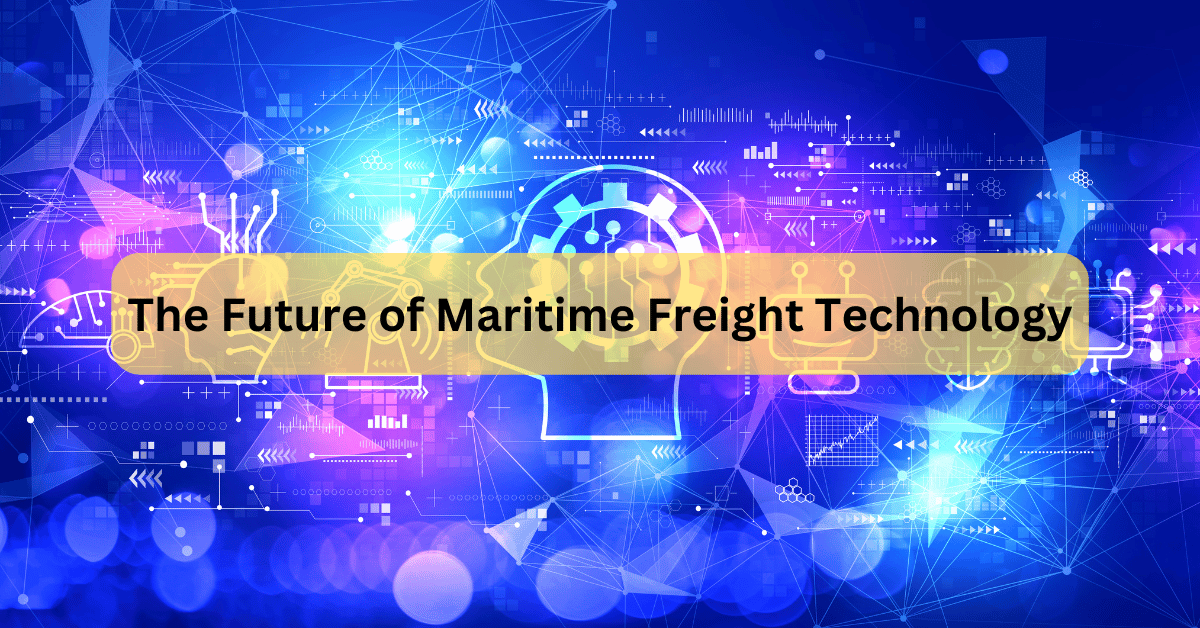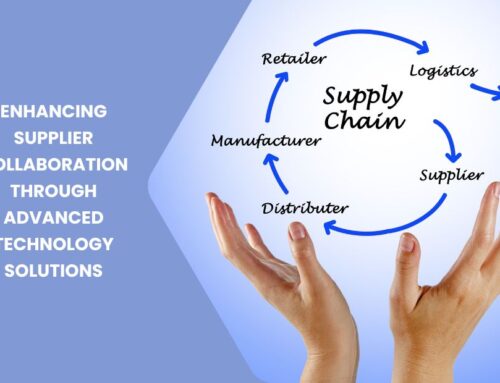The maritime freight industry stands as a pivotal component of global logistics, facilitating the movement of goods across continents with unparalleled volume. As we navigate through an era marked by rapid technological advancements, the landscape of maritime freight is poised for profound transformation. Benjamin Gordon Cambridge Capital, with its forward-looking vision, is at the forefront of this revolution, strategically harnessing technology to redefine the efficiency, sustainability, and resilience of maritime freight operations. Through its commitment to innovation and investment, Cambridge Capital aims to propel the industry into a future where technology not only enhances operational capabilities but also aligns with broader environmental and economic goals.
Benjamin Gordon Cambridge Capital’s Strategy for Maritime Freight Technology
Cambridge Capital’s strategy in the maritime freight sector is underpinned by a deep understanding of the industry’s challenges and opportunities. The firm’s approach is multi-faceted, focusing on the integration of automation to streamline operations, the adoption of sustainable practices to mitigate environmental impact, and the digitalization of processes to enhance transparency and efficiency.
Emphasizing Automation
Automation stands as a cornerstone of Cambridge Capital’s strategy, with investments geared towards developing autonomous vessels and automated port operations. By reducing reliance on manual processes, automation promises to increase the safety, speed, and cost-effectiveness of maritime freight.
Prioritizing Sustainability
Sustainability is another critical focus area, reflecting Cambridge Capital’s commitment to eco-friendly maritime solutions. Investments in green technologies, such as alternative fuel ships and emissions-reducing systems, underscore the firm’s dedication to promoting environmental stewardship within the industry.
Advancing Digitalization
Digitalization is the third pillar of Cambridge Capital’s strategy, aiming to revolutionize maritime operations through the adoption of blockchain for secure and transparent supply chain management, and AI-driven logistics to optimize routing and cargo handling. This digital transformation is poised to significantly enhance decision-making and operational agility in maritime freight.
Navigating Technological Transformation in Maritime Freight
For maritime freight companies looking to navigate the technological transformation, adopting Cambridge Capital’s strategic approach offers a pathway to success. Here are some guidelines for effectively integrating new technologies into maritime operations:
Adopting Technological Innovations
- Embrace AI and Machine Learning: Implement AI-driven solutions for logistics optimization, predictive maintenance, and demand forecasting to enhance efficiency and reduce operational costs.
- Integrate Blockchain Technology: Adopt blockchain to ensure transparency, security, and efficiency in supply chain management, facilitating seamless trade documentation and cargo tracking.
Overcoming Digital Transformation Challenges
- Address Scalability: Plan for scalable technology solutions that can grow with your operations, ensuring that the infrastructure can support future expansions.
- Enhance Cybersecurity Measures: Invest in robust cybersecurity protocols to protect digital operations from threats, safeguarding data integrity and operational continuity.
- Navigate Regulatory Compliance: Stay informed of regulatory changes related to technology use in maritime operations, ensuring compliance with international standards and practices.
By following these strategies, maritime freight companies can align with Cambridge Capital’s vision, leveraging technology to achieve greater efficiency, sustainability, and resilience in their operations. This transformative journey promises not only to elevate individual companies but also to drive the entire maritime freight industry towards a more innovative and sustainable future.
Charting a Course for Technological Excellence in Maritime Freight

“Depicting Cambridge Capital’s strategy for maritime freight: Emphasizing automation for efficiency, sustainability for environmental stewardship, and digitalization for operational agility.”
In an era where technology and sustainability intersect to define the future of industries, Cambridge Capital emerges as a beacon of innovation in the maritime freight sector. With an acute awareness of the challenges and opportunities that lie ahead, the firm is charting a course toward a revolutionized maritime freight industry that leverages cutting-edge technology while adhering to principles of environmental responsibility and operational excellence.
Automating the Seas
Automation lies at the heart of Cambridge Capital’s strategy for maritime freight. By investing in the development of autonomous vessels and automated port operations, the firm envisions a future where maritime freight operations are characterized by increased safety, speed, and cost-efficiency. This strategic pillar is poised to diminish reliance on manual processes, setting a new standard for operational excellence in the industry.
Sailing Towards Sustainability
Acknowledging the critical importance of environmental stewardship, Cambridge Capital prioritizes sustainability within its maritime freight technology vision. The firm’s commitment is evident in its investments in green technologies, including alternative fuel ships and emissions reduction systems. These initiatives reflect a holistic approach to promoting eco-friendly maritime solutions that align with global environmental objectives.
Navigating Digital Waters
The digital transformation of maritime operations represents another cornerstone of Cambridge Capital’s strategic approach. Embracing blockchain for secure and transparent supply chain management, alongside AI-driven logistics for optimized routing and cargo handling, the firm is steering the maritime freight industry toward unprecedented levels of decision-making precision and operational agility.
The vision set forth by Cambridge Capital for the maritime freight sector is both ambitious and imperative. By embracing automation, sustainability, and digitalization, the firm is not merely responding to the technological advancements of our time but is actively shaping the future of maritime freight. This comprehensive strategy promises to elevate the industry to new heights of efficiency, environmental responsibility, and resilience, ensuring that maritime freight remains a vital and vibrant component of the global logistics ecosystem.
Pioneering Maritime Freight Technologies
The maritime freight industry is at the cusp of a technological revolution, with several groundbreaking innovations setting new benchmarks for efficiency, environmental stewardship, and operational excellence. Influenced by Cambridge Capital’s visionary approach, the following technologies represent the forefront of this transformation:
Autonomous Shipping Vessels: Leading the charge in maritime innovation, autonomous ships promise to revolutionize sea freight. These vessels, powered by sophisticated navigation and control systems, aim to enhance safety, reduce operational costs, and minimize human error.
Blockchain for Supply Chain Transparency: Blockchain technology is being adopted to create transparent, secure, and efficient supply chains. By facilitating real-time tracking and authentication of cargo, blockchain enhances accountability and streamlines customs processes.
Eco-Friendly Fuel Solutions: With sustainability a pressing concern, investments are flowing into the development of alternative fuel options such as LNG, hydrogen, and electric propulsion systems. These solutions aim to reduce the maritime industry’s carbon footprint and comply with international emissions standards.
Digital Twins for Fleet Management: Digital twin technology, creating virtual replicas of physical ships, enables real-time monitoring, predictive maintenance, and operational optimization. This innovation significantly improves the lifecycle management of vessels and their on-board systems.
AI-Powered Predictive Analytics: Leveraging AI for predictive analytics in cargo loading and route optimization ensures maximum efficiency. AI algorithms analyze vast datasets to forecast weather conditions, port congestion, and other critical factors influencing maritime logistics.
The Future of Maritime Freight Technology
Cambridge Capital’s leaders possess deep insights into the maritime freight sector’s trajectory, driven by relentless innovation and technological advancement. They forecast a future where technology not only reshapes operations but also redefines the industry’s foundational principles.
Autonomous Ships
The advent of fully autonomous ships is seen as a near-term reality, with implications for global trade efficiency and safety. These vessels will navigate the oceans with minimal human intervention, relying on advanced sensors, AI, and machine learning to make decisions.
IoT Applications
The Internet of Things (IoT) is poised to connect every aspect of maritime operations, from on-board systems to port logistics. IoT applications will offer unprecedented levels of data collection and analysis, enabling smarter, more coordinated maritime freight movements.
Green Technologies
Sustainability remains a critical focus, with green technologies such as biofuels, solar and wind propulsion systems, and battery storage solutions becoming increasingly prevalent. These innovations are expected to play a pivotal role in achieving a sustainable maritime freight industry.
Looking ahead, Cambridge Capital envisions a maritime freight sector that is more autonomous, interconnected, and sustainable. Through strategic investments and partnerships, the firm is committed to nurturing the technologies that will drive this evolution, ensuring that the maritime industry remains at the forefront of global trade and environmental responsibility.
FAQs: Embracing Maritime Freight Technological Advances
How is technology impacting modern maritime freight?
Technology is fundamentally transforming maritime freight by enhancing efficiency, safety, and environmental sustainability. Innovations like autonomous vessels, blockchain for supply chain transparency, and AI for operational optimization are at the forefront of this shift, promising a future where maritime logistics operations are more responsive, cost-effective, and less carbon-intensive.
What investment strategies should companies adopt in the face of technological advancements?
Companies should focus on strategic investments in technologies that align with their long-term operational goals and sustainability targets. Embracing innovations that offer tangible improvements in operational efficiency, environmental performance, and regulatory compliance will be key. Partnering with firms like Cambridge Capital, which have a keen insight into the future of maritime technologies, can provide a strategic advantage.
What tips can Cambridge Capital offer maritime companies looking to stay ahead in a tech-driven industry?
Staying ahead requires a proactive approach to technology adoption and a willingness to innovate. Cambridge Capital advises companies to:
- Continuously monitor emerging trends and technologies in the maritime sector.
- Invest in employee training and development to build a tech-savvy workforce.
- Foster a culture of innovation that encourages experimentation and the adoption of new technologies.
- Engage in partnerships and collaborations to leverage external expertise and resources.
In conclusion
Cambridge Capital’s comprehensive strategy for advancing maritime freight technology underscores the pivotal role of innovation, strategic investment, and industry collaboration in navigating the challenges and opportunities of the future. By championing the adoption of groundbreaking technologies and supporting initiatives that drive efficiency, sustainability, and operational excellence, Cambridge Capital is helping to steer the maritime freight industry toward a future marked by unprecedented advancements and transformative potential. The firm’s visionary approach not only sets a new standard for technological adoption in maritime freight but also highlights the critical importance of embracing change to ensure long-term competitiveness and success in an increasingly dynamic global landscape.










